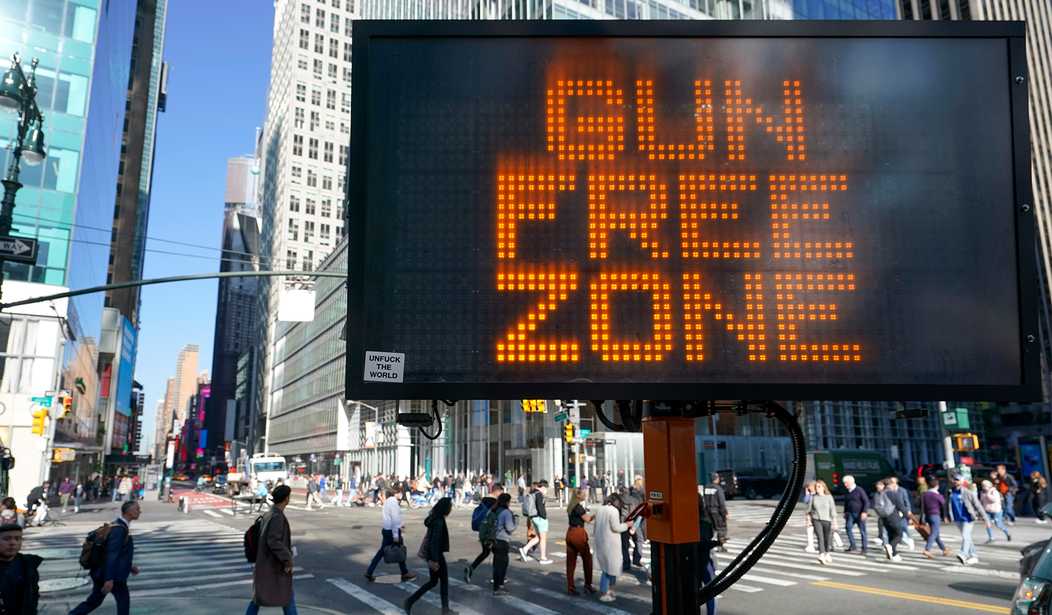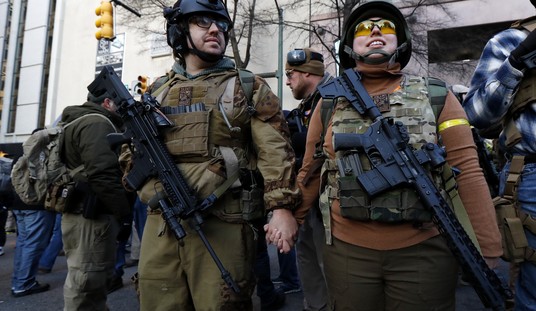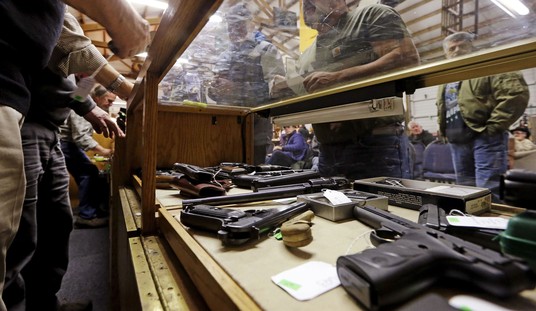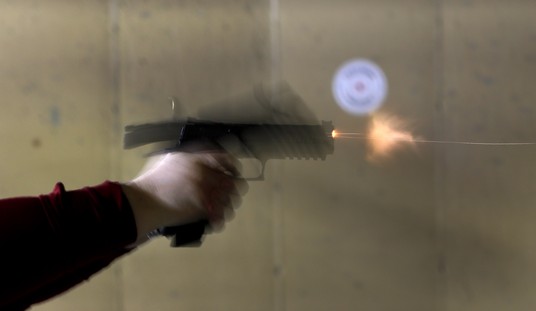A three-judge panel on the Ninth Circuit Court of Appeals took up several challenges to post-Bruen restrictions on the right to carry on Thursday, and while I'd love to report that the judges appeared to faithfully apply the Supreme Court's "text, history, and tradition" test to the plethora of newly-imposed "gun-free zones" in California and Hawaii, instead it looks like the appellate court is going to continue its own tradition of hostility towards the right to keep and bear arms.
Today, the 9th circuit heard oral arguments in three separate sensitive places cases, including CRPA's challenge to SB2, May v. Bonta. Unfortunately, the panel seemed to be hostile to our side and may be deadset on mostly reversing Judge Carney's excellent ruling. If that…
— Chuck Michel (@CRPAPresident) April 11, 2024
I didn't have a chance to catch much of the oral arguments as they happened, but even in the few minutes I was able to watch there were signs that the panel is going to flagrantly disregard what the Court has said about the "national tradition" of gun ownership and historical analogues to modern-day restrictions. Neal Katyal, who represented the state of Hawaii before the three-judge panel, argued that even one or two local ordinances is enough to establish a tradition, and the judges seemed to buy into his claim despite the fact that it flies in the face of Bruen.
This is such a dumb argument. Bruen rejected TWO STATE LAWS as insufficient.
— Kostas Moros (@MorosKostas) April 11, 2024
Another oddity in today's hearing was the fact that the panel seemed to be overly concerned about creating a split in the appellate courts, pointing to the Second Circuit's prior ruling on an injunction against New York's lengthy list of "sensitive places".
The State immediately attacks the vampire rule being where the Second Circuit is wrong.
— Firearms Policy Coalition (@gunpolicy) April 11, 2024
They say that the State does have a right to create a default carry ban on private property because we have cities now
Later in the argument the panel once again brought up the Second Circuit's decision in Antonyuk and its affiliated cases.
The lawyer says that the Second Circuit did get a lot wrong with their applications territorial laws
— Firearms Policy Coalition (@gunpolicy) April 11, 2024
The Ninth Circuit panel shouldn't be concerned about creating a split with the Second Circuit. The fact that the majority of the panel was so clearly interested in avoiding one is a troubling indication that the judges are more interested in playing keep-away-from-SCOTUS than protecting the rights of Californians and Hawaii residents who are subject to these disarmament zones. A circuit split makes it more likely that the Supreme Court will accept one or more of these cases, but that should be of no interest whatsoever to the judges on the panel.
As CRPA attorney Kostas Moros pointed out, the Ninth Circuit may not be able to avoid a circuit split anyway. The Third Circuit is currently pondering New Jersey's laundry list of "gun-free zones" in a case called Koons v. Platkin, so there's more than just the Second Circuit's previous ruling at play.
Both Michel and Moros were pretty explicit about bringing May v. Bonta to the Supreme Court at the earliest opportunity once the Ninth Circuit's decision comes down, regardless of whether there's a split in the appellate courts.
My prediction, and I hope to be wrong: all we are going to win is the vampire rule and maybe parking lots. Perhaps rural parks AT MOST.
— Kostas Moros (@MorosKostas) April 11, 2024
We will be ready to file for cert when that happens. By then, hopefully Koons will have been issued and we will have a circuit split, as that… https://t.co/Fj7E2oVLl7
Ultimately it's going to be up to SCOTUS to rein in the post-Bruen abuses that we've seen in blue states across the country. As attorney Alan Beck pointed out to today's panel while excoriating Hawaii's "gun-free zones", fully 96 percent of the island of Maui is deemed to be so "sensitive" that lawful carry is prohibited. That's an absurd figure, and it flies in the face of the Supreme Court's holding that the Second Amendment protects a general right to carry a firearm for self-defense in public (and publicly accessible places).
Hawaii and California are continuing to treat the right to bear arms as if it's no right at all, just a privilege to be doled out at the whims of the State. If the Ninth Circuit does broadly uphold these "sensitive spaces" it will make a mockery of the Bruen decision. And if SCOTUS allows the Ninth Circuit's decision to go unchallenged or unchecked it will be both a dereliction of the Court's duty and a travesty of justice for every American trying to exercise their fundamental Second Amendment rights in those states that still refuse to recognize the fundamental importance of its protections.









Join the conversation as a VIP Member